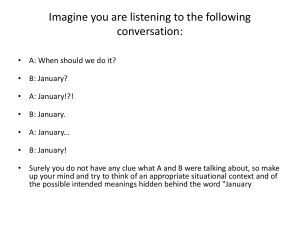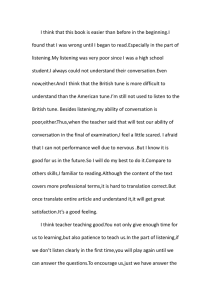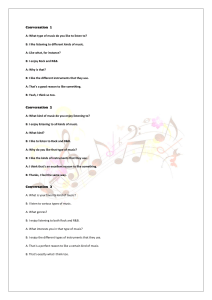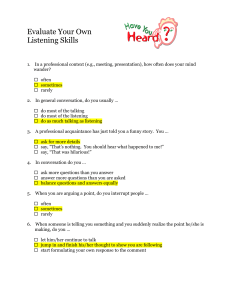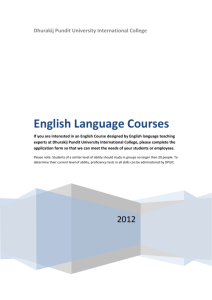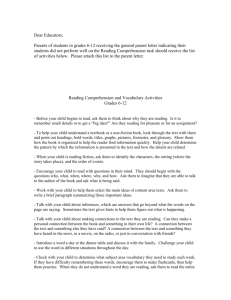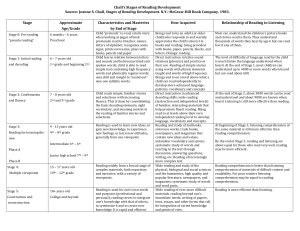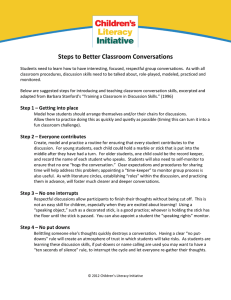ESL EXIT TEST LISTENING WORKSHOP 300LEVEL
advertisement
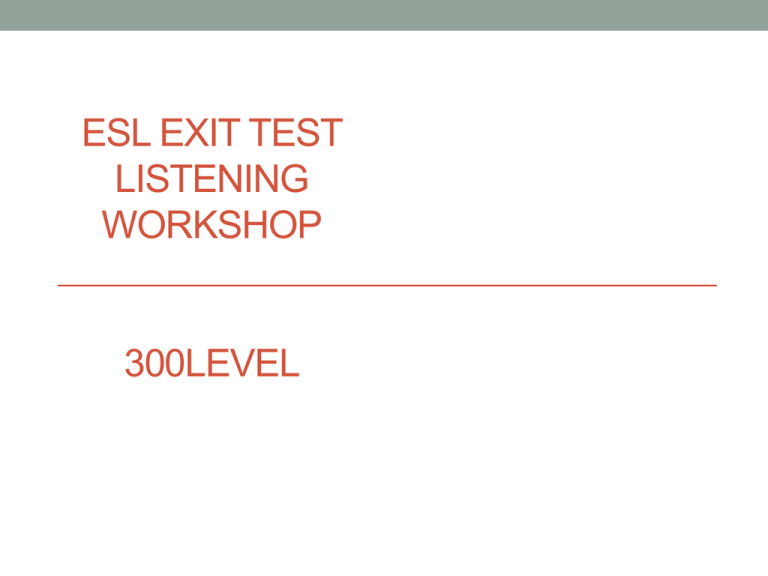
ESL EXIT TEST LISTENING WORKSHOP 300LEVEL Listening Section: Basics 1. Standard American English 2. Each question gets harder with: a. Speed b. Vocabulary c. Language (idioms, etc.) 3. Read the questions, Listen to the short conversation. Take notes. Answer the questions. Then you read the question. You can only listen one time, so be ready and take notes! Screen Layout Look for Context Two children are playing… Two students are talking… A professor is giving a lecture… Read the Question(s) 1. Who wants to play soccer? a. The boy b. The girl c. The father d. The mother 1 Listen Question Move between Questions 2 3 4 Listening Strategies Pre: 1. Read the context 2. Read Questions and Answers (take your time) a. who, when, where, why, which, how much During: 1. Take notes (related to questions) 2. Don’t wait for the answer to the first question (not in order) Going from 316 416 Students typically are able to understand most discourse about personal situations and other everyday experiences, including conversations with basic academic and/or occupational subject matter. Main ideas and details are generally grasped, although comprehension is sometimes affected by length, topic familiarity, or cultural knowledge. Students are able to understand different time frames and usually understand utterances using the perfect tenses, conditionals, modals, passives, but there may be some difficulty. They are aware of common cohesive devices, such as ‘however’ and ‘as a result’ but may be unable to utilize them to enhance comprehension. Let’s Practice! Context: Listen to a Voice Recording at the Registration Office What is the TRAIL system used for? A. To go to classes B. To get information and register for classes C. To speak to someone at the Registration Office D. To get your grades 2. What will happen if you do NOT confirm your registration? A. You will have to pay more. B. The computer will change your registration. C. You will need to take more classes. D. The computer will not accept your registration. Context: Classmates discuss their college experience 1. Where does the conversation most likely take place? A. at the school's library B. in a college dormitory C. in a university classroom 2. What year is the woman in college? A. Freshman B. Junior C. Senior 3. Which statement is NOT true about her paying for college? A. She is currently repaying student loans. B. She has worked to earn college tuition. C. She received a scholarship. 4. What is her future job situation? A. She will work in her father's business after she graduates. B. She wants to go on to graduate school the following month. C. She hopes to have interviews with different companies soon. 5. What surprising information do we find out at the end of the conversation? A. The woman is married to the man's business teacher. B. Paul Jones, a college teacher, is the woman's father. C. The man and woman are actually long-lost relatives.
